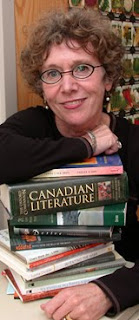Review of A Prayer for Everyone by Tomas O’Leary
Review by Lawrence Kessenich
Broadly speaking, most of the poems in Tomas O’Leary’s new collection fall into two categories: idea poems and story/character poems. Most of the idea poems occur in the two earlier sections of the book, “What One Has Said” and “Confession on a Tight Budget.” Most of the story/character poems occur in the final section, “A Sorceress of Rate Note.”
I find the idea poem daunting, but O’Leary takes on the form with unbridled gusto—and often with humor. In the section’s title poem, “What One Has Said,” he examines “truth” and “candor:”
I speak now only that I not be lying.
If I should die before I wake, well, hell,
at least the light is on. The darkness drops again
each time I hesitate. I train my tongue
into orbit around silences.
Even a poem about a cat named Ashes ends up a Buddhist meditation:
The cage of consciousness is not hers to pace
As she flattens down to refuge in the Buddha.
Lordly, they take the sun together,
Fur and stone – the ravager
And the holy one, fast friends…
O’Leary has a clever way of personifying ideas, so that they’re not just dry thoughts, but things that move around in front of the reader, as in “Hands Without Pockets,” where the contrast between what men and women do with their hands says much about the differing natures of the two sexes:
So often have women turned
their hands into grace, through gesture
or occupation, without
misgivings all will come out
right, they clearly manage
naked. Men, though, are lost, their hands
determined to hide deep in their pockets…
I was so enamored of O’Leary’s ability to manipulate ideas in his poems that I wanted more, so my less enthusiastic response to the story/character poems probably reflects that wish. It’s not that the cast of characters isn’t interesting and colorful: “The Perfectionist’s Midlife Crisis,” “Dick Cheney on Iambic Truth Serum,” “A Monk Gone Larking,” “The Alehouse Lion Rises and Orates.” The book’s first and title poem, “A Prayer for Everyone,” which might have served better as the introduction to this last section, captures O’Leary’s appreciation for the wonderful variety of human nature:
Blessed are the saved and the damned, for both
are born to blessing;
Blessed are the best and the worst, the wisest,
the most foolish;
Blessed are the fallen, the risen, the reverent,
and the ghoulish.
And he delineates these characters, tells their stories, with great enthusiasm. The “Monk Gone Larking” is not actually a monk, but the thumb of coast-to-coast hitchhiker who meets a lovely lass along the way:
…as I pass her the blackberry brandy.
She takes a belt that’s neither
greed nor daintiness and passes
back the bottle. Does she mind
if I smoke? Hell no,
go right ahead, do I have
any hemp, ha ha? I do ha ha.
Now the Chevy’s on air jets five feet
above the highway, in perfect gear…
“The Book of Shite” pillories a mythical landlord, Lord Owen Shite – I’m assuming he’s meant to be an English landlord in Ireland – and the ass-kissing Irish priest who convinces the Irish, represented by Doug MacDeep, that serving Shite is an honor:
In jags contumely strove
the florid pigwit Doug MacDeep
to caution tenants by the drove
they’d Christwise best contain their peep,
scale down the larder and eke out
the doubled rent since sunset last
they must be paying Owen Shite,
who suffers them to till his dust.
…
The priest was circumspect and pure,
a man of God who loved a story:
Spreading his subject like manure,
he harvested a Shite of glory!
Though certainly bold and enthusiastic, these story/character poems don’t quite have the impact for me that O’Leary’s idea poems have. He’s clearly a man of profound thought, even when he’s making ideas do cartwheels for us. In fact, it’s those cartwheels that help us reconsider ideas in a new light – and how many writers of poetry or prose are capable of making us do that?































































